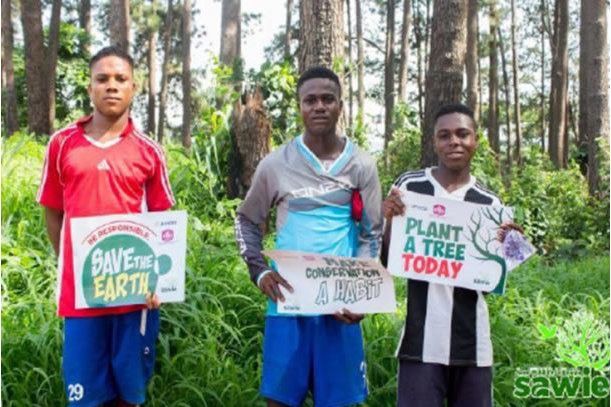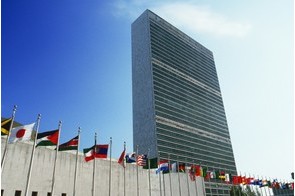Access Bank launches Save Wildlife Programme

Summary
The programme aims to provide awareness and educate people in local communities on wildlife conservation.
Last May, Access Bank Plc introduced the Save Wildlife Programme as a community-based wildlife conservation initiative. The programme was launched as part of the award-winning sustainability strategy of Africa’s largest bank by customer base. Save Wildlife Programme demonstrates how the bank underscores the importance of protecting animal species and their habitats to maintain the balance and stability to the world's biodiversity.
Biodiversity – which is the totality of genes, species and ecosystems – is threatened by mostly human activities, including deforestation, urban development, farming and hunting. The 2019 Global Assessment Report on Biodiversity and Ecosystem Services published by the Intergovernmental Science-Policy Platform on Biodiversity and Ecosystem Services (IPBES) shows that close to a million species could face extinction in a few decades as a direct result of human activity, climate change and land degradation.
The report says ecosystems, including wild populations as well as domesticated plants and animals, are shrinking, deteriorating or vanishing. The world is already experiencing biodiversity loss, which is one of the drivers of global warming.
“Biodiversity and nature’s contributions to people are our common heritage and humanity’s most important life-supporting ‘safety net,’" said Sandra Díaz, who co-chaired the report. The report, therefore, calls for innovative policies by countries, local authorities and businesses to galvanize actions and initiatives for transformative change to conserve biodiversity.
Also highlighting the importance of protecting and properly managing ecosystems, the World Economic Forum’s Global Risks Report 2020 ranks biodiversity loss and ecosystem collapse as one of the top five threats humanity will face in the next ten years. The loss of biodiversity endangers the habitats and ecosystems of various types of wildlife. According to National Geographic, threats to wildlife include climate change, pollution, hunting, fishing, and poaching.
In a statement sent to Financial Nigeria, Access Bank said the loss of biodiversity presents a barrier to the achievement of the Sustainable Development Goals (SDGs) of ending poverty, hunger, and communicable diseases. Particularly, SDG 15 focuses on stopping biodiversity loss, among other targets.
Apart from its ecologically importance, biodiversity conservation is also economically and culturally important. It enhances bio-cultural diversity. Indeed, Access Bank said biodiversity contributes to sustaining human well-being. Hence, the goal of wildlife conservation is not only to ensure the survival of the species, but to preserve human lives.
The aim of the Access Bank Save Wildlife Programme is to provide awareness and educate people in local communities on wildlife conservation. The programme will institute conservation clubs in secondary schools to sensitise youths and advocate actions for effective conservation of endangered species in Nigeria.
The programme was held from May 6– 28, 2020 in partnership with Glow Initiative, a Lagos-based non-governmental organisation tackling problems like unemployment, poor electricity access and climate change in communities. Access Bank said, along with Glow Initiative, it introduced Save Wildlife Programme across four communities in Enugu State, Nigeria. The communities were Orieni Amechi, Udeji Amechi, Enugu Ngwo and Garriki Awkunanaw.
Access Bank said it held strategic discussions with the Enugu State Ministry of Environment on forest conservation and its role in ensuring the sustainability of wildlife in the state. The bank said 250 hunters and farmers as well as 280 community secondary school students have been educated on conservation of wildlife. So, far, over 2,120 people have been impacted by the programme.
By contributing towards a healthy biodiversity and sustainable wildlife management, the bank has also demonstrated its leadership in sustainability in the Nigerian financial services sector. Access Bank is also a member of the United Nations Environment Programme Finance Initiative's (UNEP FI) sub-group on Biodiversity. The sub-group of the partnership between UNEP and the global financial sector is tasked with championing the development of policies and programmes on biodiversity in the sector.
Related
-
Gates Foundation says inequality is a hindrance to progress on SDGs
The Goalkeepers 2019 Report says geography, gender, race, age, religion, levels of education and income have outsized ...
-
Access Bank at the front lines of SDG actions
This year marks the beginning of a decade in which action needs to be accelerated by key stakeholders to achieve SDGs.
-
Corporate best practices are key to achieving sustainable development
Highlighted in SDG 16, peace, justice, and strong institutions can be considered the primary catalysts of sustainable ...









_-_300x350-202501141442143232.jpg)
